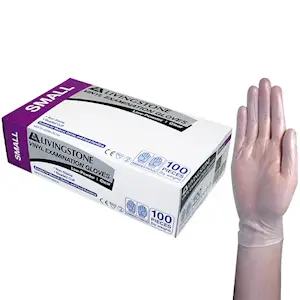Vinyl gloves have emerge as a staple in numerous industries, from healthcare and meals service to cleaning and personal care. While those gloves provide important safety, their disposal poses full-size environmental challenges. With growing cognizance of sustainability, it’s vital to recognize the way to nicely do away with Vinyl Gloves to limit their effect on the surroundings.
1. Understand the Composition of Vinyl Gloves
Vinyl gloves are made from polyvinyl chloride (PVC), a type of plastic that is not biodegradable. Unlike natural substances, vinyl can take hundreds of years to decompose, contributing to plastic pollution in landfills and oceans. Understanding their composition is the first step to responsible disposal.
2. Check Local Regulations and Guidelines
Before casting off vinyl gloves, take a look at nearby regulations concerning plastic waste control. Many regions have precise pointers on how to remove scientific waste and single-use plastics. Following those suggestions can assist make sure that your disposal practices are compliant and environmentally friendly.
3. Reduce Waste by way of Reusing When Possible
While vinyl gloves are generally designed for unmarried use, don't forget reusable options for tasks that do not require excessive stages of contamination control. If you do use vinyl Gloves, try and minimize their consumption through rethinking responsibilities that may not require them. This can assist lessen typical waste.
4. Dispose of Gloves in Contaminated Waste Bins
If the vinyl gloves are infected with unsafe substances (along with chemical substances, biological waste, or physical fluids), they have to be disposed of in distinct contaminated waste bins. This prevents any harmful materials from leaching into the environment and guarantees secure managing.
5. Dispose of Clean Vinyl Gloves in General Waste
If the gloves are clean and no longer infected, they can normally be thrown away in trendy waste. However, preserve in mind that no longer all waste management systems take care of plastics in the same manner. Ensure your gloves become in a landfill that makes use of cutting-edge waste control techniques to limit their environmental impact.
6. Explore Recycling Options
While recycling alternatives for vinyl gloves are restrained, some centers may accept them. Research neighborhood recycling centers and inquire approximately their regulations on accepting PVC gloves. If to be had, this may be a extra sustainable alternative in place of sending them to landfills.
7. Consider Eco-Friendly Alternatives
As consciousness of plastic waste grows, many producers are developing extra sustainable alternatives to conventional vinyl gloves. Consider exploring biodegradable gloves or those crafted from recycled substances. While once in a while more costly, they frequently offer a similar degree of safety with a discounted environmental footprint.
8. Educate Others
Spreading awareness about the significance of right glove disposal can make a sizeable distinction. Educate friends, family, and associates approximately the environmental impact of vinyl gloves and inspire them to undertake sustainable practices. Sharing statistics will increase network recognition and fosters responsible conduct.
9. Advocate for Better Solutions
Engage with manufacturers and policymakers approximately green glove options and improved disposal methods. Support agencies that prioritize sustainability of their products, and inspire local governments to broaden higher waste management techniques for plastics.
10. Monitor Your Personal Use
Finally, consciously screen your vinyl glove usage. Keep song of whilst and why you operate them, and attempt to restrict their consumption wherever possible. By lowering your reliance on single-use gloves and thinking about replacements or reusable alternatives, you may make a tremendous effect on waste reduction.
Conclusion
Properly getting rid of vinyl gloves is vital for minimizing their environmental effect. By know-how their composition, adhering to nearby guidelines, and exploring sustainable alternatives, we will make a contribution to a healthier planet. With collective efforts and heightened awareness, we can make a wonderful exchange toward sustainability in our each day practices.





